| Usage |
Usage
Before using Wegovy, your healthcare provider should provide thorough instructions.
● Ensure Wegovy is visually clear, colorless, and free from particles before injecting.
● Administer Wegovy once weekly on a consistent day, with or without meals.
● Subcutaneous injection can be performed in the abdomen, thigh, or upper arm. You can change injection sites and times without altering the dose.
● Rotate injection sites with each use, avoiding repetition.
● Wegovy pens are single-use and prefilled, containing the full dose.
● The needle cover hides the needle, so don't remove the pen cap until you're ready to inject. Avoid touching the needle cover to prevent needle stick injuries. Injection starts when the needle cover contacts your skin.
● Keep the pen on your skin until the yellow bar in the pen window halts to ensure the full dose. Contact healthcare or Novo Nordisk at 1-833-934-6891 if the yellow bar stalls or stops.
● Upon removing the pen from your skin, the needle cover locks. Injections cannot be paused or restarted.
● Individuals with vision issues should not use Wegovy pens without trained assistance.
|
| Side Effects |
Side Effects
-Like many medications, Wegovy can result in mild or severe side effects. Several side effects are associated with Wegovy, as indicated below. Not all potential side effects are covered here.
Side effects of a drug can vary based on factors such as age, health conditions, and ongoing medications.
You can discuss Wegovy side effects with your doctor or pharmacist.
Common side effects of Wegovy might include: nausea, abdominal pain, dizziness, stomach flu, diarrhea, headache, bloating, heartburn, vomiting, fatigue, belching, constipation, upset stomach, and gas.
Less common side effects encompass:
Pancreatitis: If you experience persistent, severe abdominal pain with or without vomiting that extends from your abdomen to your back, discontinue Wegovy and contact your healthcare provider immediately.
Gallbladder Problems: Wegovy could lead to gallbladder problems, including gallstones. Seek medical attention if you encounter upper abdominal pain, jaundice (yellowing of skin/eyes), fever, or clay-colored stools.
Hypoglycemia: Low blood sugar can occur in those with type 2 diabetes taking Wegovy, requiring prompt treatment. Recognize symptoms like shakiness, blurred vision, sweating, weakness, hunger, irritability, fast heartbeat, and more.
Kidney Problems: Dehydration resulting from diarrhea, nausea, and vomiting may worsen kidney problems. Stay hydrated to minimize this risk, especially if you have existing kidney issues.
Increased Heart Rate: While at rest, Wegovy might elevate your heart rate. Regular heart rate monitoring is advised, and any sustained rapid or pounding heartbeat should be reported to your healthcare provider.
Depression: Monitor for mood changes, particularly sudden alterations in mood, behavior, thoughts, or feelings. Promptly inform your healthcare provider of any new or worsening mental changes.
|
| Storage |
Storage
-Store Wegovy pens at temperatures ranging from 2°C to 8°C (36°F to 46°F). For up to 28 days, you can store Wegovy between 8°C and 30°C (46°F to 86°F) in its original carton after removing the cap. It is advisable to maintain Wegovy within the original carton to shield it from light. Avoid freezing.
Dispose of used Wegovy pens in Federal Health Authority-cleared sharps disposal containers immediately after use. Do not dispose of the pen in household garbage. If you lack an Federal Health Authority-cleared sharps container, you can use a household container that is made of sturdy plastic, has a secure, puncture-resistant lid, remains upright and stable, is leak-proof, and properly labeled as hazardous waste.
Dispose of your sharps container according to local guidelines when it's nearly full. Used needles and syringes should be discarded as per state or local laws.
|
| Warning and Precautions |
Warning and Precautions
Thyroid C-Cell Tumor Risk
In mice and rats exposed to semaglutide throughout their lives at clinically relevant plasma exposures, there was an increased occurrence of thyroid C-cell tumors (adenomas and carcinomas). However, Wegovy has not been found to induce thyroid C-cell tumors, including medullary thyroid carcinoma (MTC), in humans. The human relevance of semaglutide-triggered rodent thyroid C-cell tumors remains undetermined. The association between MTC and GLP-1 receptor agonist use is inconclusive, as post-marketing reports of MTC in liraglutide-treated patients (e.g., Saxenda) are insufficient. Wegovy is contraindicated for those with personal or family histories of MTC or MEN 2. Patients should be informed about the potential MTC risk linked to Wegovy use and be aware of thyroid tumor symptoms (e.g., neck mass, dysphagia, persistent hoarseness).
Routine serum calcitonin monitoring or thyroid ultrasound may be recommended for Wegovy recipients to detect MTC early. However, the high prevalence of thyroid disease and low specificity of serum calcitonin may lead to unnecessary procedures. Individuals with MTC typically exhibit serum calcitonin levels exceeding 50 ng/L, indicating significantly elevated levels. Elevated serum calcitonin should prompt further evaluation. Patients with thyroid nodules should also undergo a physical examination or neck imaging.
Acute Pancreatitis
Patients on GLP-1 receptor agonists, including semaglutide, have reported cases of acute pancreatitis, including hemorrhagic and necrotizing pancreatitis. Clinical trials with Wegovy indicated instances of acute pancreatitis in patients. Following Wegovy initiation, be vigilant for signs of acute pancreatitis (e.g., persistent severe abdominal pain radiating to the back, possibly with vomiting). Immediate discontinuation of Wegovy is necessary if acute pancreatitis is suspected and should not be restarted if confirmed. Patients with a history of pancreatitis have not been studied with Wegovy to determine their risk.
Acute Gallbladder Disease
Wegovy recipients reported cholelithiasis at a rate of 1.6%, with 0.6% experiencing cholecystitis, compared to 0.7% and 0.2% respectively for placebo-treated patients. Even considering weight loss, Wegovy users showed a higher incidence of acute gallbladder disease. Gallbladder studies and clinical follow-ups are recommended if cholelithiasis is suspected.
Hypoglycemia
Hypoglycemia is possible after taking Wegovy. Reported cases of hypoglycemia (plasma glucose less than 54 mg/dL) were 6.2% for Wegovy recipients versus 2.5% for placebo in type 2 diabetes patients with BMI greater than 27 kg/m2. Severe hypoglycemia was observed in one Wegovy-treated patient. An increased risk of hypoglycemia, including severe cases, is linked to Wegovy use in combination with drugs like sulfonylurea or insulin. People with type 2 diabetes should monitor blood glucose before and during Wegovy treatment, adjusting concomitant insulin secretagogue doses when starting Wegovy.
Acute Kidney Injury
Post-marketing reports noted acute kidney injury and worsening chronic renal failure in semaglutide-treated patients, sometimes requiring hemodialysis. Though more likely in patients with renal impairment, acute kidney injury occurred in patients without underlying renal disease. Monitor renal function when initiating or increasing Wegovy doses in patients experiencing severe gastrointestinal reactions, reporting adverse reactions that may lead to volume depletion in those with renal impairment.
Hypersensitivity
Serious hypersensitivity reactions have occurred with semaglutide (e.g., anaphylaxis, angioedema). Discontinue Wegovy in case of hypersensitivity reactions, contact healthcare professionals, and monitor until symptoms subside. Do not use if hypersensitive to semaglutide or Wegovy excipients. Anaphylaxis and angioedema have been reported with other GLP-1 receptor agonists, though the relationship with Wegovy remains uncertain.
Complications of Diabetic Retinopathy in Individuals with Type 2 Diabetes
Wegovy-treated patients reported diabetic retinopathy at a rate of 4.0% versus 2.7% for placebo in type 2 diabetes patients with a BMI greater than or equal to 27 kg/m2. In a 2-year trial, diabetic retinopathy complications were more common with semaglutide than placebo. Patients with diabetic retinopathy at baseline face higher risks. Monitor the progression of diabetic retinopathy, especially in patients with a history of the disease.
Heart Rate Increase
Wegovy patients experienced increased resting heart rates, with significant changes from baseline. Patients should monitor heart rate and report palpitations or a racing heartbeat. A sustained resting heart rate increase may warrant Wegovy's discontinuation.
Suicidal Behavior and Ideation
Reports of suicidal behavior and ideation exist in trials of weight management products. Monitor for mood changes, suicidal thoughts, or unusual behavior during Wegovy treatment. Cease the use of Wegovy if experiencing thoughts or behaviors indicative of suicidal tendencies. Those with a history of such tendencies should not use Wegovy.
|


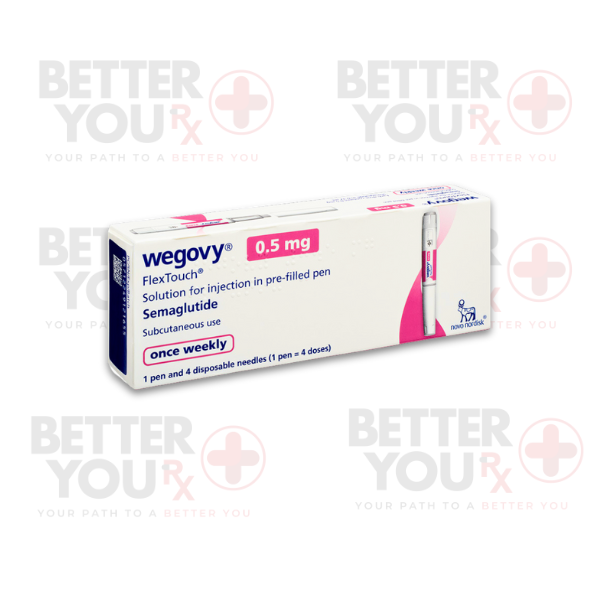
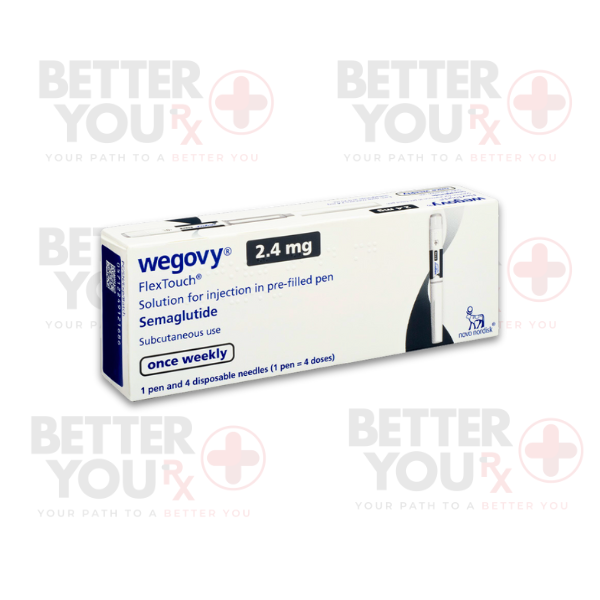
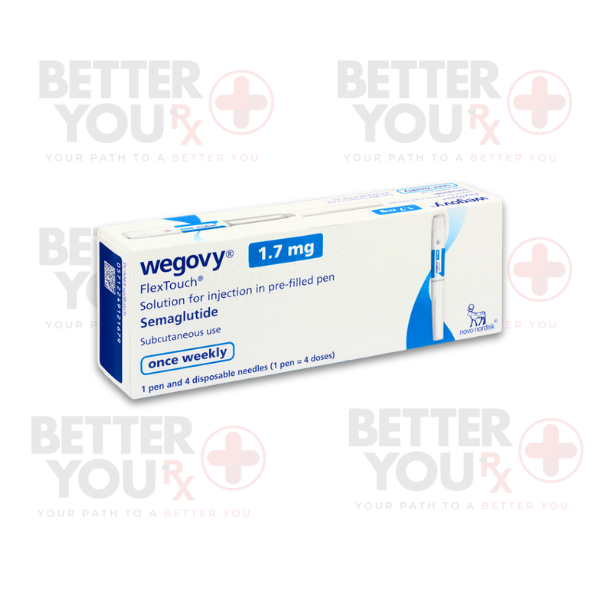
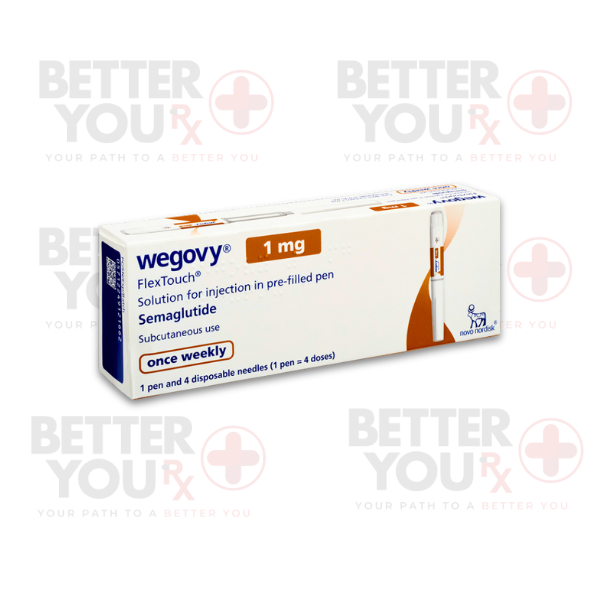
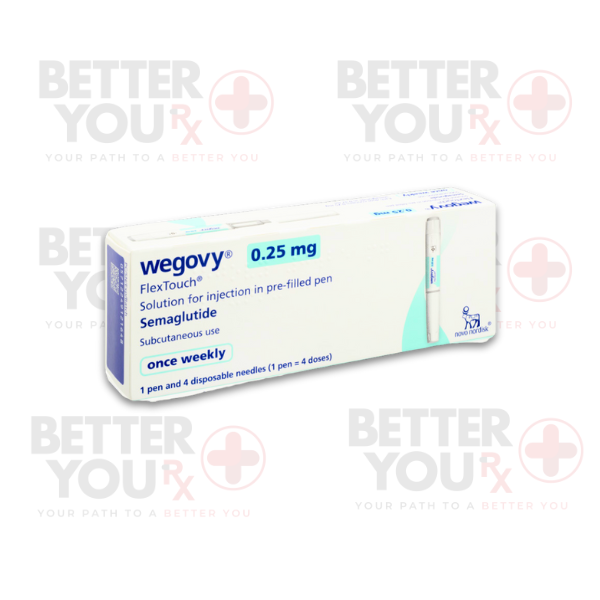
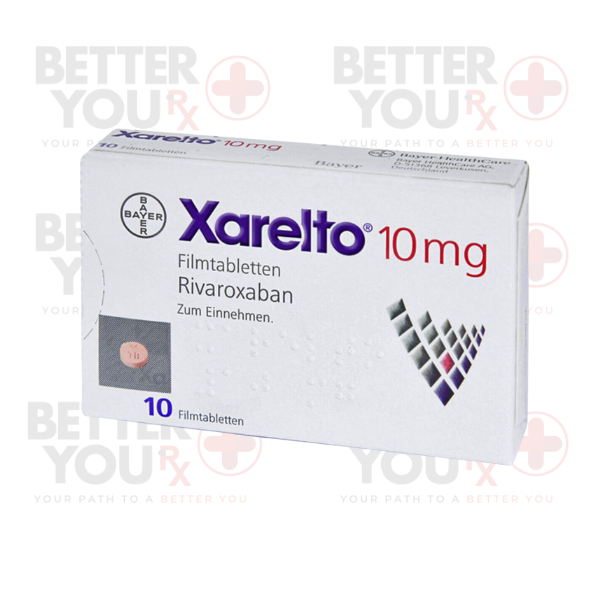
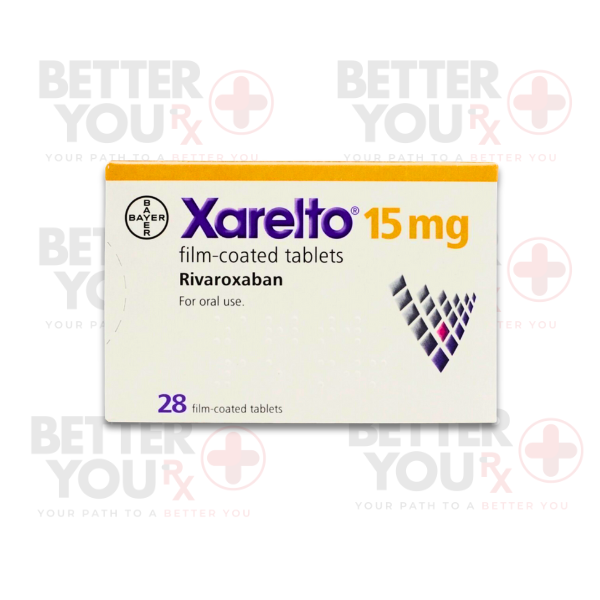
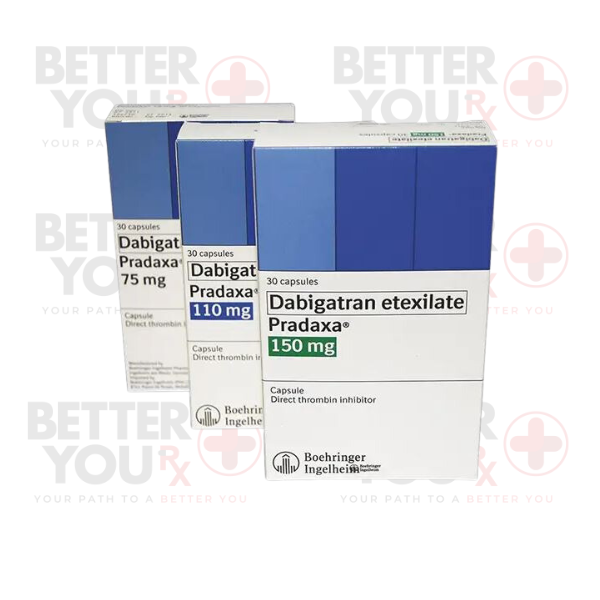
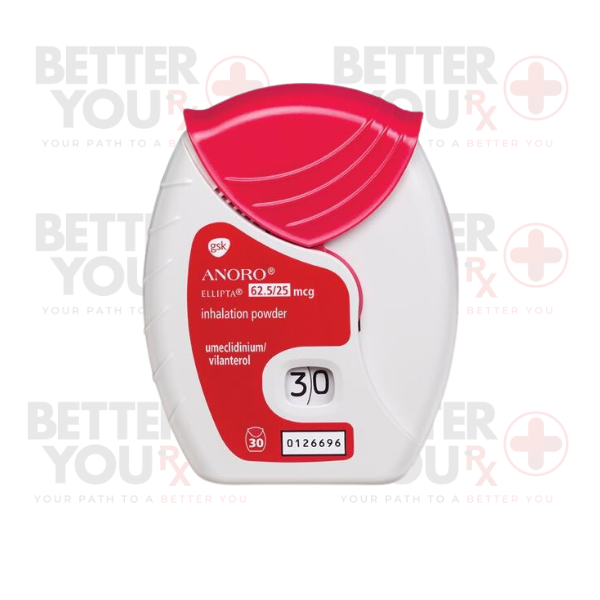
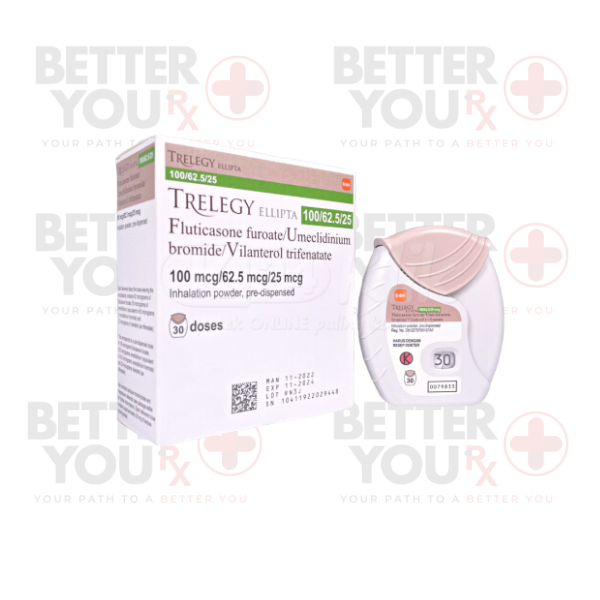
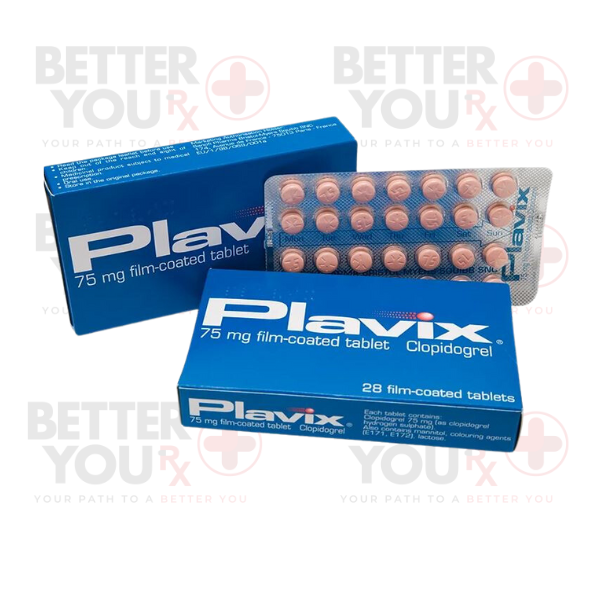

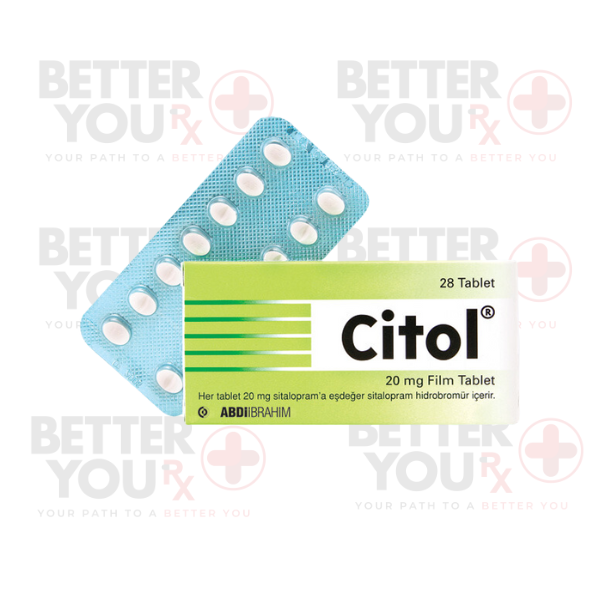

Claire B. –
Wegovy has been incredible for my confidence. I’ve always struggled with portion control, but now I feel satisfied after meals without that nagging hunger. It’s like my body is finally in sync with what I need. I’m more active and genuinely happier — a life-changer!
Lucas H. –
I didn’t expect such a difference with Wegovy, but it’s been incredible!
Karen L. –
Wegovy has been amazing for me! I’m finally eating mindfully without feeling deprived, and it’s given me such a positive outlook on my health. My portion sizes are smaller naturally, and I’m feeling more energetic throughout the day. Better You Rx makes it easy to stay on track with their reliable delivery!
Tom R. –
Wegovy helped me get control over my eating habits like nothing else has. I’m not constantly thinking about my next meal, and that freedom feels incredible. I’ve been losing weight steadily, and my mood has improved as well.